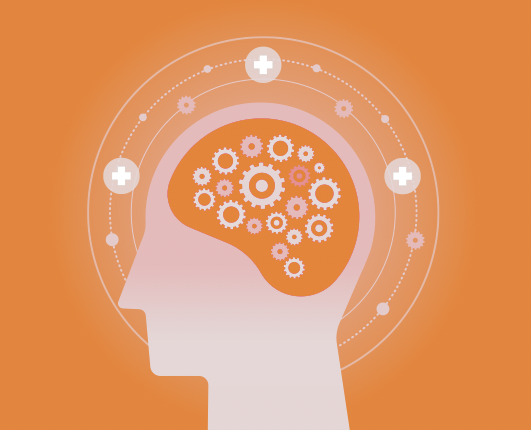What does it mean to “hack your brain”? Brain Hacking: “A strategic technique centered around universal human biology, with the goal of altering functions such as perception, focus, or awareness.”
The concepts of learning and growth are often associated with pain. And since they are both necessary parts of achieving success, some of the most successful people in the world implement “brain hacking” techniques into their daily lives that help to encourage ease in learning and developing a growth mindset for the highest possibility of success.
New knowledge is built on what we already know
Tej Tadi, founder/CEO of MindMaze, an engineer, entrepreneur and neuroscientist shares: “Neuroplasticity lasts throughout your life, so it is never too late to begin learning new things.” Since new knowledge is built on what we already know, the more we know the easier we’ll be able to learn in the future. According to Tadi, featured in Inc., “The important thing to remember is that learning requires repeatable goal directed tasks. If you have a goal or specific target and can combine repeatable tasks, it will consolidate memory in your brain and improve executive function.”
How can brain hacking assist us in developing a growth mindset?
Dr. Andrew Huberman, a professor at Stanford University and neuroscientist shares that a growth mindset is the attachment that takes place between our internal reward system and the friction we experience during processes that take effort.
And when it comes to developing this growth mindset, the pain of taking action or expending the necessary energy to create and learn can potentially translate into agitation and stress.
But here’s the good news:
These seemingly negative feelings were actually designed to make us get up and move! And when we try to quiet this stress with distractions (technology/screen time, alcohol, food), we’re going to run into a problem. Because as soon as we start to feel that “fire” deep inside, and it comes time to make a decision on how we respond, we can either suppress the feeling—or make our move and lean into action.
“The purpose of pain is to move us into action; it is NOT to make us suffer.” -Tony Robbins
Since stressful feelings are meant to be triggers for action and not just some form of suffering, we can use that moment of agitation to make a choice. If we deliberately take the time to stop and access that pain for intentional action, we’re also taking the first step towards hacking our brain for success!
Brain Hack: Small wins lead to major success
Each small victory towards a goal that you’ve set is a chance to celebrate your effort, your ability, and yourself. It’s a moment to acknowledge the fact that you are likely accomplishing things that might be extremely difficult, if not impossible, for others.
Beyond recognizing your personal strength, your brain is chemically recognizing your actions as well. Taking actions that are inspired by the pursuit of a goal stimulates our neurological rewards system. And this happens as dopamine (the “feel-good” hormone and neurotransmitter) is released, setting the stage for a reward cycle.
Data exists proving we can motivate ourselves!
Even more exciting is the potential that exists to access endless reserves of energy. When your motivation is running low, you can consciously choose a responsible release of dopamine to quickly reward yourself for a small task or win that’s been accomplished. This might include watching a short comedy, getting some movement outdoors, or even listening to music. This helps to create a chemically-induced momentum, inspiring you to keep working, even when faced with exhaustion.
This process is the primary reason that we need to reward each incremental step that’s connected to forward-thinking, growth-minded actions. Essentially, celebrating our smallest wins will lead to success with our biggest goals.
Establishing a solid internal reward system is a great start, but you can also take actions that will improve the relationship with your environment, promoting an even stronger growth mindset. If you aren’t already implementing these following habits into your schedule, you need to start now. Get ready to feel immediate upgrades in both your mental and physical health!
Personal accountability starts at night
You might think that “burning the midnight oil” is a productive habit to be proud of, but did you know that you’re actually punishing your brain?
You’ve likely heard about blue lights and late-night screen time, in general, affecting our sleep cycle, but it’s actually much worse than you may realize. Our body’s internal clock is a lot smarter than we think it is, and it wants you to get some rest!
An example of data proving that blue lights are really bad
Around 11 pm if our eyes are still taking in sources of bright lights (especially the blue variety), chemicals are released that trigger disappointment circuits and send distress signals throughout our body.
By exposing our eyes to excess light at the wrong time, we are ultimately punishing the brain. It’s triggered to automatically suppress our dopamine, which in turn affects our general mental health and well-being.
We can instead decide to shut off this source of distress to our nervous system by turning off the lights and our screens at the right time. This “hack” encourages better sleep, which leads to an improvement in our everyday moods and emotions.
The quality and frequency of the light we allow into our eyes play a huge role in the function of our nervous system. When we choose our long-term health and success over the immediate gratification of staying up late to scroll through our phone or watch TV, all we need is some authentic discipline!
Turn down your ringer, put away your devices, and maybe even try wearing a sleep mask (this is a game-changer for those who are sensitive to light).
Do this to set yourself up for an earlier morning—and your next brain hack!
Hacking sunlight data
Here’s another time-based strategy that nearly anyone can implement immediately, which impacts most aspects of our health, including things like cognitive functions and the digestive and immune systems.
As soon as we open our eyes in the morning, we need to skip things like checking our phone or what’s on any of our screens, and instead check out the sunlight! According to Huberman, we can use our eyes to help wake up our brain, which gives the brain some instruction for the course of the day. By allowing our eyes to take in anywhere from 2-10 minutes of bright, natural sunlight during the early parts of the day, we successfully optimize our body’s internal clock functionality.
Brain cells outside of the brain?
Lining the back of our eyes is a neural retina, which is not attached to our brain, but functions as part of it. During our physical development, the cells in this neural retina were pushed outside of our skull to take part in a specific task: sense the light events that take place in our environment. And these light events are not just about the shapes and figures we’re processing. Light events also tell the nervous system how and when it needs to be functioning, based on the amount and quality of light it is experiencing at any given time.
Allowing our eyes to access this bright, early light allows a natural, beneficial process to take place. Our body translates this information to begin directing its energy towards the appropriate bodily functions that need to happen. This also affects how any excess energy can be used and where it should be delegated for optimal performance.
This doesn’t mean we’re supposed to burn or damage our eyes by staring directly at the sun! As soon as you wake up, take a seat by your bedroom or kitchen window, and intentionally gaze out towards the sunlight as you enjoy your coffee or tea. Or even better, taking a short stroll down the street while gazing up towards the sun will also give you the direct, bright light exposure that the nervous system is craving.
By implementing this practice first thing in the morning, it helps to organize and direct the nervous system (and the entire body) in an extremely powerful way.
YES—It takes discipline to stick to things like a new schedule or routine, and potentially a good amount of effort to build new habits, but there is no doubt that your brain hacking efforts will get you on the path to peak performance, significantly improving not only your professional life, but entire well-being!
by Cherilyn Cole
author + your direct connect @ GrowthLenses
Quick tip from the Neurogym Team:
Turn Off Background Noise
Don’t casually listen to podcasts and watch TV shows while working or doing chores. Focus on those things and cherish your ability to do a good job and take care of yourself and your home.
The willingness to put down your phone and confront whatever makes you want to run away means the difference between living a meaningful life and staying forever imprisoned by pain and avoidance.
If you’d like to learn more to learn more about some of the latest techniques to change your mindset and eliminate your destructive habits, join us for a free workshop with John Assaraf and neurogym HERE!

Recommended for you:
Joe Dispenza – “Learn the Science of Changing your Mind”
Get this FREE GUIDE to learn about his TOP RESOURCES you can start using NOW!
GrowthLenses Roots
GrowthLenses Roots are short features created to inform readers about some of the latest concepts and tools that inspire personal growth.
GrowthLenses MindSet
GrowthLenses MindSet articles were created to educate and inspire readers, featuring our favorite thought leaders, authors, and resources.

